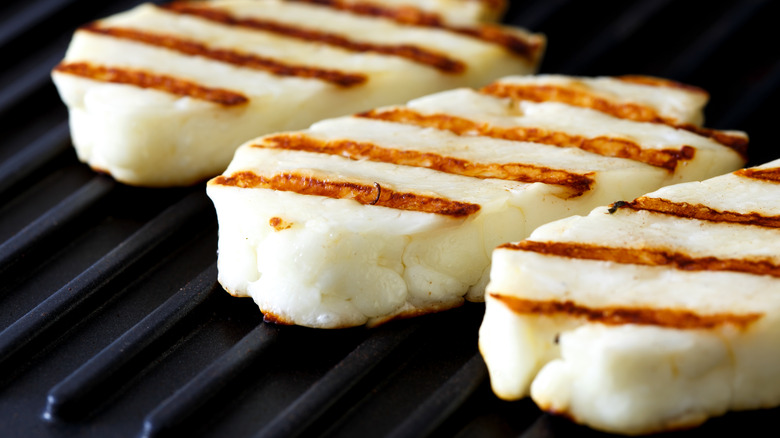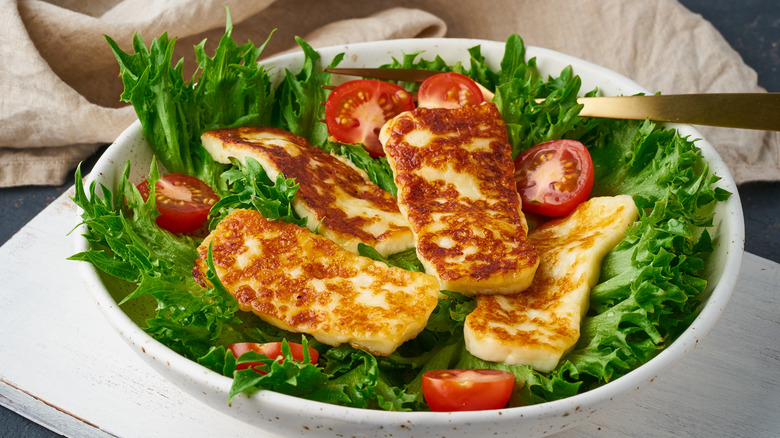What Is Halloumi Cheese And What Does It Taste Like?
If you're looking to beat the charcuterie board competition and impress your guests with some fancy cheese (and wine!), then look no further — halloumi cheese is the answer to your appetizer woes. If you like fried foods and you like creamy, delectable cheeses, then trust us: You'll like halloumi.
Halloumi is a unique Mediterranean white cheese made from sheep's or goat's milk, explains The Spruce Eats. It stands out from the fetas, mozzarellas, and bries of the bunch thanks to its springy, cheese curd-like texture and high melting point. It's a firm, almost meat-like block of cheese that starts as milk and is mixed with rennet, then pressed and salted. Sometimes, mint is added to really complement the flavor. If it's not served fresh, it'll be aged for a few months before it hits supermarket shelves, according to the site.
If you are lucky enough to find halloumi in stores, here's a heads up: This trendy cheese comes at a cost. Prices for a small portion of the cheese started at $4.99 back in 2019, with the best deal offered at Trader Joe's, says Oola. There are a few reasons why this cheese is so expensive, the primary one being its source. Since the cheese is almost exclusively made in Cyprus, it's a logistical nightmare to get it across borders, which only hikes up the price — and demand — more.
Halloumi cheese tastes the best when properly prepared
If there's anything to know about halloumi, it's this: You must cook it to get the full experience (via Foodiosity). Unlike other similar, springy cheeses, halloumi isn't all that impressive when eaten straight from the store. While it's completely safe to eat uncooked, the taste of raw halloumi is reminiscent of "a firm, dry feta cheese," says The Spruce Eats.
Instead, try tossing some thin slices of halloumi on the grill or deep-frying the cheese in oil (definitely not the healthier option, but it's practically a gourmet mozzarella stick, and that we can get on board with). When fried, halloumi is still squeaky and springy, but with a bit of a crunch on the outside. Because of its high melting point, halloumi will hold its shape, but still turn creamier and softer when cooked (via Oola). No matter which way you cook it, halloumi tends to take on a tangy flavor that grows stronger depending on the time it was aged. The grilling cheese might smell a bit like gorgonzola while it's heating up, but the flavor should remain mild, rich, and salty once served (via Foodiosity).
While the flavor is the star of the show, halloumi is undoubtedly on the saltier side. Some Redditors in the Cooking subreddit suggest soaking the cheese for a half an hour before cooking to draw out some of the salt and achieve a more muted profile — just be sure to drain it properly before it hits the skillet or grill.

